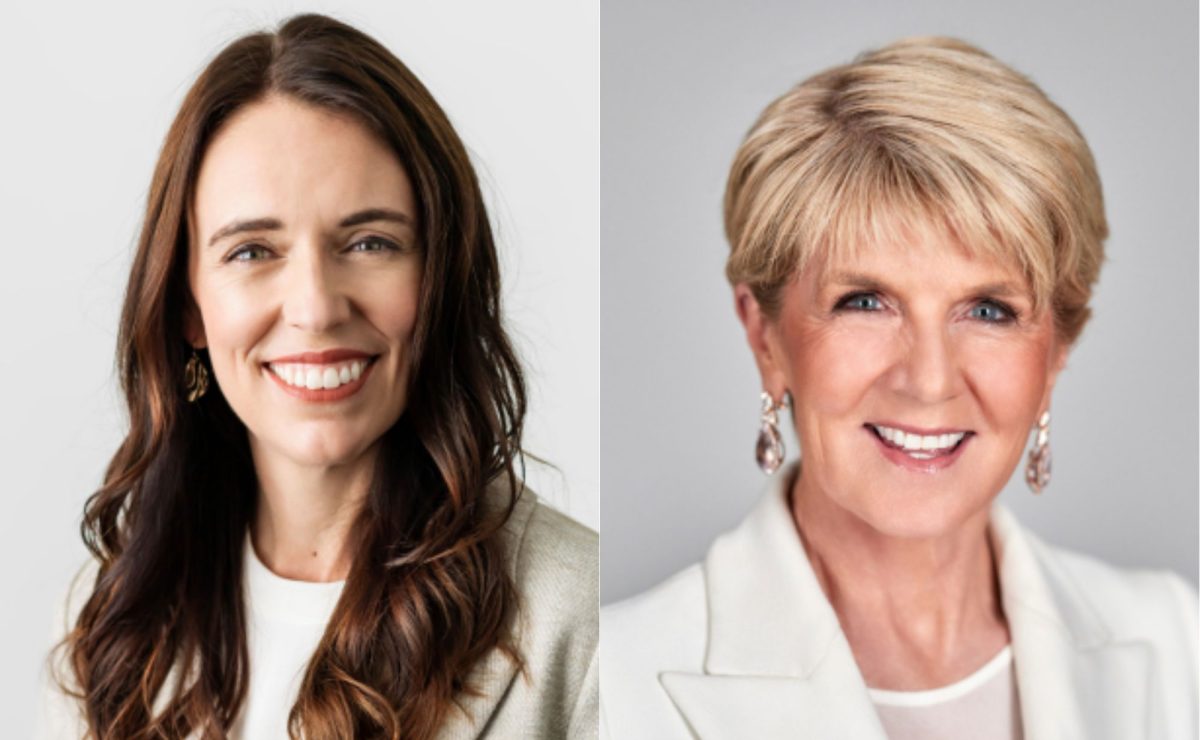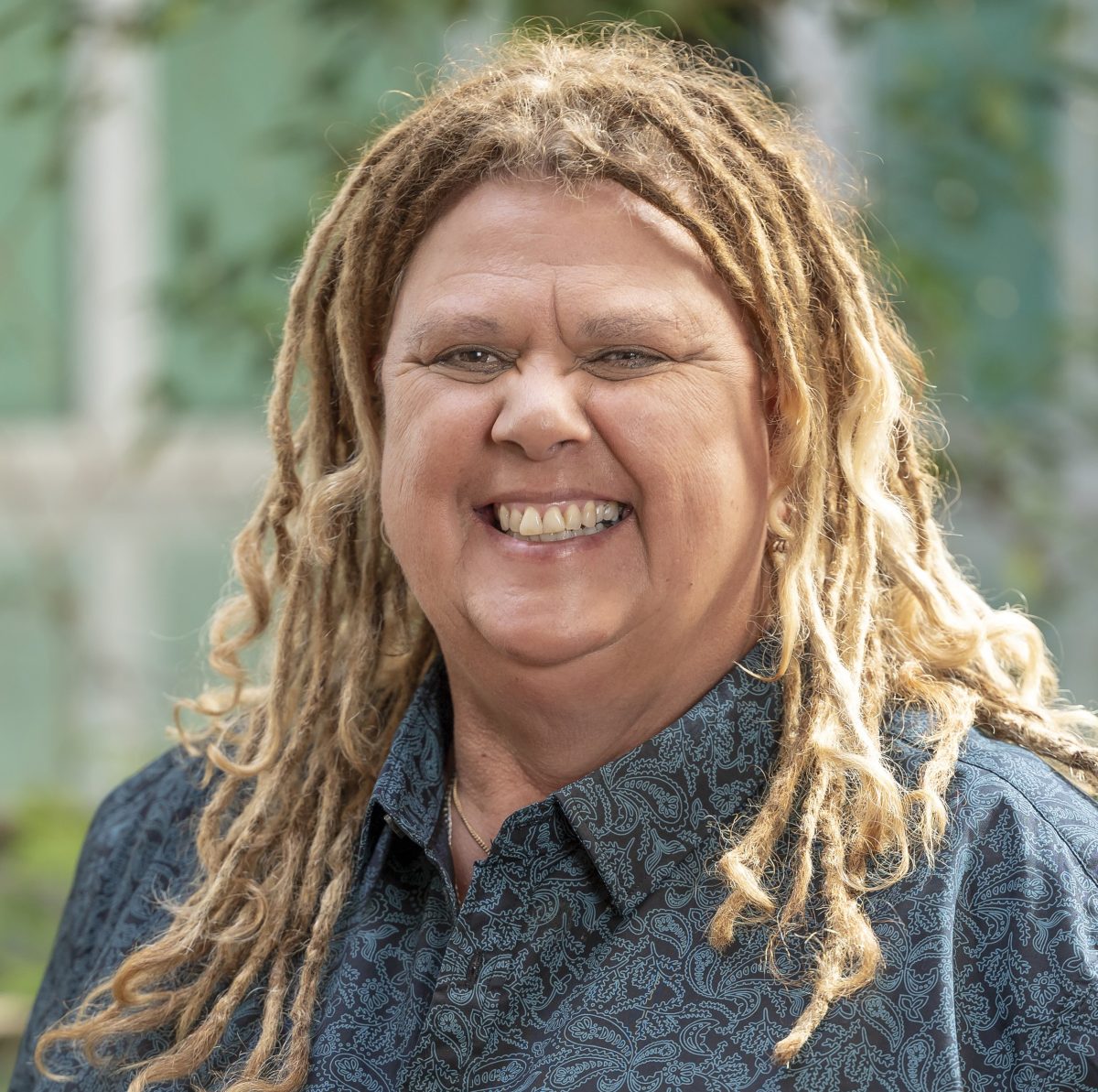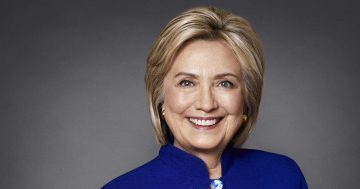
Dame Jacinda Adern and Julie Bishop will appear as headline speakers at the Women in Leadership Summit 2025, along with Emma McKeon. Photos: Supplied.
It was 2020, and a country still reeling from the Black Summer Bushfires was grappling with a global pandemic and floods when Lil Gordon Ngemba was asked to step up as head of Aboriginal Affairs for NSW.
Though known for her positivity and confidence, it gave her pause.
“I wouldn’t call it imposter syndrome, but there was definitely a sense of wanting to do a good job and reflecting on whether I had the skills to ensure I wasn’t taking the opportunity from someone who could have landed it better,” she says.
“It was going to be a huge commitment, and that weighed on me, given my family history.”
Lil’s dad was the longest-serving ATSI (Aboriginal and Torres Strait Islander) commissioner, and her mother worked in education. Both held their responsibilities high and worked extremely hard, giving to the cause. At times, this had implications for their well-being and navigating time with family.
“Seeing the pull on you as a person was a consideration. It was a question of – as well as being a single mum – is this something I should take up?” Lil says.
“I think it’s normal to second guess yourself, but then you have to go through a process of meeting each of your self-doubts and talking with the people you know will be honest with you.
“I am also a person who believes our ancestors put us where they need us to be at a particular time. Given this profound sense of responsibility, sometimes you don’t have a say – you have to dig deep and step into it.”
As a Ngemba, Aboriginal and gay woman in leadership, Lil has had her fair share of face-offs with doubts and leadership crises – stories she plans to share at the Women in Leadership Summit 2025.
“People often ask how I can bring so much energy with me wherever I go, particularly in the First Nations space where there is a lot of talk about deficit,” she says.
“My aim at the Summit is to connect people with my own story and give them an insight into how I step into a space with as much confidence as I can.
“I hope people walk away having done some self-reflection on who they are, their positionality as a leader, where they stand now, how they’re connected in the community, what they know about their histories, how they understand their world views, and how they then show up with humility and willingness to grow. But also, how do they celebrate where positive change has occurred and those relationships that lead to success?”

Lil Gordon Ngemba joins a stellar lineup of speakers at the event. Photo: Supplied. Photo: Supplied.
In response to demand in Canberra, the Women in Leadership Summit has moved to the biggest venue in the national capital – the National Convention Centre.
The 2025 event, streamed and in person across seven cities including, for the first time, Tasmania, is themed ‘The original trailblazers – Women who paved the way’ and will feature VIP speakers Dame Jacinda Adern, Julie Bishop and Emma McKeon.
Given previous events featured world leaders like Hillary Clinton, Julia Gillard, Theresa May and Helen Clark, organisers The Hatchery had their work cut out for them raising the bar further.
The answer was to hone in on trailblazing women, paving the way for others.
“At the time, Jacinda Arden was the first western PM to give birth while in office, and she was the youngest at the time as well. Julie Bishop was the first woman to serve as Australian Foreign Minister. Emma McKeon recently became the first female to be the ‘most decorated Olympian’ as a six-time gold medallist,” The Hatchery’s managing director Andrew Savage says.
“They all have unique stories to tell about their times in leadership positions, the adversities they face getting in those positions with no beaten path ahead, and the challenges of managing the scenarios they faced once there.”
Joining these three incredible headliners will be an unmissable lineup of some of the most senior women in the Australian Public Service sharing their stories and practical tips for success alongside enlightening and empowering discussions on the most critical topics for informed and respectful leaders.
Talks and panel discussions will tackle a broad range of issues faced by women in leadership, from misogyny in the workplace to women’s health issues such as menopause, mental health, endometriosis and fertility.
Intersectionality will also be explored, with unique perspectives from First Nations people, the LGBTQIA+ community, women of colour and more.
Andrew said the Summit serves women at all levels of leadership – from established to aspiring – and the men who want to support them.
“Men represent half the population, so it’s important they understand the challenges facing women and the roles they can play as allies to help advance them.”
The Women in Leadership Summit 2025 takes place Tuesday, 18 February, and Wednesday, 19 February, in-person and online.














